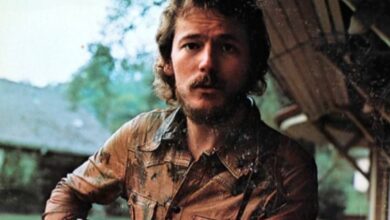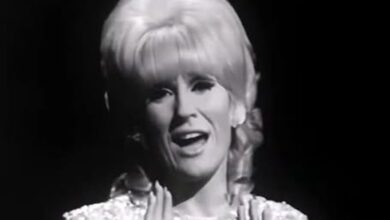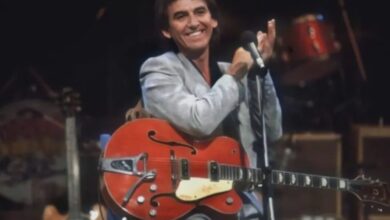Ronnie Milsap’s “Smoky Mountain Rain” Redefined Country-Pop Storytelling and Reigned Supreme in 1980
In the fall of 1980, Ronnie Milsap released a single that would come to define not only a key chapter in his career, but also a new moment for country-pop crossover: “Smoky Mountain Rain.” With its lush arrangement, bittersweet narrative, and Milsap’s trademark vocal warmth, the song quickly soared to No. 1 on both the Billboard Hot Country Songs chart and the Adult Contemporary chart. More than just a hit, it bridged genres in a way few country artists had accomplished, drawing pop and easy listening audiences into the soul of the Smoky Mountains. For many listeners, it wasn’t just a song—it was a journey home.
Ronnie Milsap was no stranger to genre defiance. Born in Robbinsville, North Carolina, in 1943 and blind from birth, Milsap defied the limitations society placed on him. Trained in classical music before turning toward R&B and country, his ability to move fluidly between styles set him apart. While many of his contemporaries embraced traditionalist twang, Milsap was busy introducing synthesizers and string sections to the Nashville sound, much like Ray Charles had done a generation earlier. He emerged as one of the most successful crossover artists in country music, with a voice that could shimmer with heartbreak or soar with optimism.
The story behind “Smoky Mountain Rain” is as vivid as the song itself. Written by Kye Fleming and Dennis Morgan—two of Nashville’s most respected songwriters of the era—the song was crafted with Milsap in mind. Inspired in part by Elvis Presley’s “Kentucky Rain,” which Milsap had played piano on a decade earlier, the writing duo sought to blend natural imagery with emotional urgency. The idea of a man returning to Tennessee in search of a lost love—only to be met with the mist and mystery of the Smokies—was both cinematic and deeply relatable. Milsap instantly connected to the theme of longing and the idea of coming home, and made it his own.
Recording “Smoky Mountain Rain” was a carefully orchestrated process. Produced by Tom Collins, who had helped Milsap craft much of his late ’70s output, the track featured a sweeping arrangement. Strings, piano, gentle percussion, and subtle guitar framed Milsap’s tender vocal delivery. What stood out most was the piano motif, carrying the listener along like a winding mountain road. The production, though clean and radio-friendly, never lost its emotional edge. Milsap’s voice—full of ache and hope—was layered with echo that evoked both the loneliness of a rainy day and the grandeur of Tennessee’s mountain backdrop.
Upon release, the response was swift and emphatic. “Smoky Mountain Rain” climbed to the top of the country charts within weeks, and even cracked the Billboard Hot 100, peaking at No. 24. More significantly, it reached No. 1 on the Adult Contemporary chart, marking Milsap’s third song to do so. The track’s appeal was undeniable—it was country enough for Nashville, smooth enough for pop radio, and evocative enough to stand apart from the glossy fare dominating the charts at the time. Radio stations played it relentlessly, and fans across the nation embraced it as a modern classic.
Culturally, “Smoky Mountain Rain” arrived at a pivotal moment. The late ’70s and early ’80s saw a transformation in country music, with artists like Milsap, Kenny Rogers, and Crystal Gayle reshaping the genre’s image and reach. Milsap’s hit helped solidify that shift. The song’s cinematic lyrics and genre-blending production showcased how country music could tell rich, emotional stories without relying solely on fiddles and steel guitars. It invited new listeners in while staying true to its roots—a balancing act that influenced countless artists to come.
For Milsap, the song marked a new peak. Already a six-time Grammy winner by 1980, “Smoky Mountain Rain” further solidified his superstar status. It led to more television appearances, a packed touring schedule, and even greater crossover success. The song also helped him break new international ground, especially in Canada, where it charted prominently and opened doors for future tours. Fans began to associate Milsap not just with hit singles, but with timeless narratives told through music.
The track’s influence can be traced through the careers of many artists who followed. Vince Gill, Josh Turner, and even crossover-friendly acts like Keith Urban have cited Milsap’s genre-fluid style as an inspiration. “Smoky Mountain Rain,” in particular, showed how powerful a ballad could be when rooted in personal geography and emotional vulnerability. It didn’t just chart—it showed other artists how to build bridges between country storytelling and pop polish.
Covers of the song have kept its legacy alive. In 2019, Milsap recorded a duet version with Dolly Parton, reintroducing the track to a new generation with added vocal depth and charm. That rendition re-entered the public consciousness, sparking a fresh appreciation for its songwriting and emotional pull. Other artists have performed it live in tribute, especially in Tennessee, where it has taken on something close to official anthem status.
Interestingly, “Smoky Mountain Rain” arrived at a time of deep personal grounding for Milsap. He had just turned 37 and was navigating the balance between fame and family. The song, with its themes of searching, belonging, and rediscovery, mirrored some of his own experiences—particularly the pull between touring life and returning home. That resonance added an invisible layer of authenticity to every performance.
Over the decades, the song’s popularity hasn’t waned. It continues to receive regular airplay on classic country and soft rock stations. In 2010, it was officially designated as one of Tennessee’s State Songs—a rare and meaningful honor. At concerts, fans often respond with tears, cheers, and quiet reverence when the opening notes begin. Its blend of regional pride and emotional yearning makes it timeless.
Looking at the broader music landscape, “Smoky Mountain Rain” was a precursor to the explosion of crossover success in the late ’80s and ’90s. It laid the groundwork for artists like Garth Brooks, Shania Twain, and Faith Hill to blend pop production with country roots. It proved that audiences didn’t mind blurred lines—they just wanted great songs that told human stories.
In the years since, Milsap has received numerous honors, including induction into the Country Music Hall of Fame. Yet even among all his accolades, “Smoky Mountain Rain” remains his most beloved recording. Its success is not just measured in chart positions, but in emotional connection—generation after generation continues to find solace and meaning in its story.
“Smoky Mountain Rain” endures because it touches on something universal—the longing for home, for love, for clarity in a foggy world. Ronnie Milsap turned a simple story into a sweeping ballad, giving voice to emotions too big for words alone. And in doing so, he gave country music one of its most treasured jewels.





